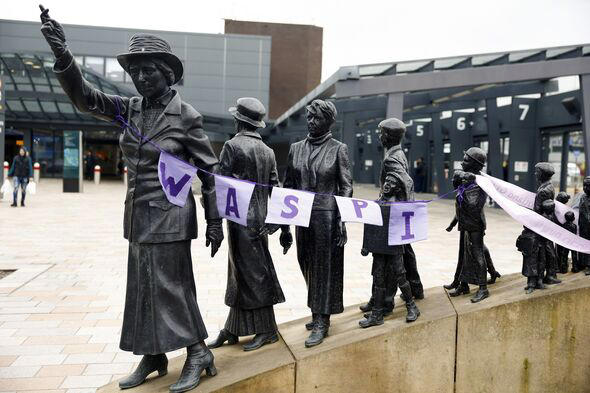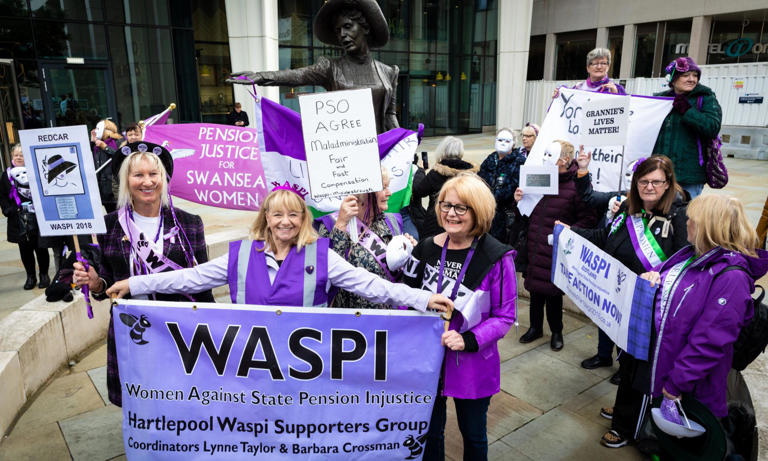- Homepage
- Political arena
- “WASPI Women: 5 Shocking Ways Politicians Ignore Them”
“WASPI Women: 5 Shocking Ways Politicians Ignore Them”
WASPI Women: The Power of a Voting Bloc
Learn how WASPI women, affected by changes to the state pension age, could sway the outcome of the next UK general election. Discover the potential impact on parliamentary seats, the demand for compensation, and the influence on political parties.

© Getty
WASPI Women: Who Are They?
WASPI women, short for Women Against State Pension Inequality, are a group of individuals affected by changes to the state pension age. Many of these women faced challenges due to insufficient notification about alterations in pension policies, leading to financial difficulties during retirement.
The Electoral Influence of WASPI Women
In the upcoming UK general election, WASPI women could wield significant influence as a unified voting bloc. Their votes could potentially sway outcomes in up to 170 parliamentary seats, making them a pivotal force in determining the future government.
Distribution Across Party Lines
With over two million WASPI women residing in constituencies won by the Conservatives in the previous general election, and one million in Labour-held seats, their distribution spans across the political spectrum. This diverse placement enhances their potential impact on the electoral landscape.
Marginal Constituencies and Decisive Votes
In 166 marginal constituencies, the number of WASPI women exceeds the parliamentary majority from the 2019 election. This statistical significance implies that their votes could be decisive in shaping the outcome of closely contested races, emphasizing their electoral relevance.
The Quest for Compensation
WASPI campaigners advocate for compensation for the affected women, citing administrative failures by the Department of Work and Pensions. Many women were not adequately informed about changes to the state pension age, resulting in unforeseen financial hardships during retirement.

© Photograph: Andy Barton/Rex/Shutterstock
The Undecided Voter Dilemma
Despite their numerical strength, 60% of WASPI women have yet to decide on their voting preferences. The response from political parties regarding compensation could play a crucial role in swaying this sizable segment of undecided voters, highlighting the importance of addressing their concerns.
Demand for Political Commitment
To address the grievances of WASPI women, campaigners have drafted letters urging parliamentary candidates to commit to fair and expeditious compensation. This demand for political accountability underscores the significance of the issue in the electoral landscape.
Impact on High-Profile MPs
Several high-profile MPs, including cabinet members and senior Tories such as Alex Chalk, Richard Holden, and Alister Jack, could face electoral challenges if WASPI voters turn against them. Similarly, prominent Labour MPs like Angela Rayner, Yvette Cooper, and Ed Miliband are also susceptible to electoral repercussions.
Conclusion: The Voice of WASPI Women
As the UK approaches the next general election, the voice of WASPI women resonates with unparalleled significance. Their collective influence has the potential to shape electoral outcomes, compel political parties to address their demands for compensation, and hold elected representatives accountable. In a democratic society, the empowerment of marginalized groups like WASPI women underscores the enduring pursuit of social justice and equality for all citizens.
ALSO READ:
https://cypranetnewsuk.com/state-pension-age-changes-5-shocking-truths-you-wont-believe/



1 COMMENTS